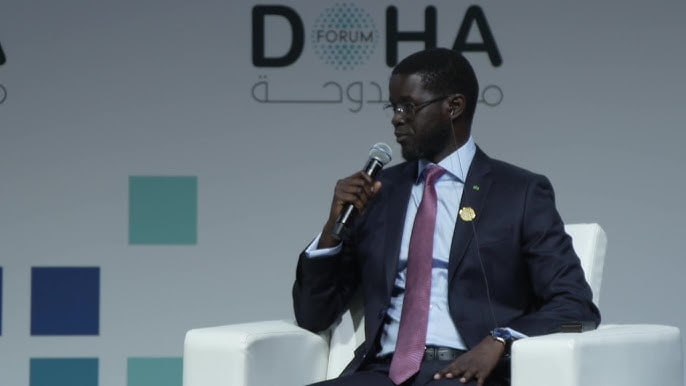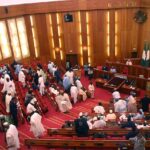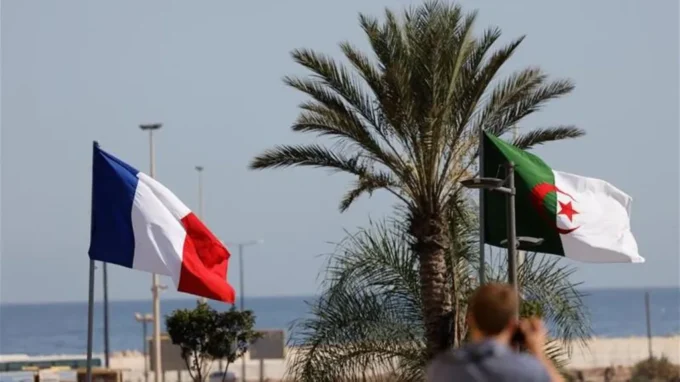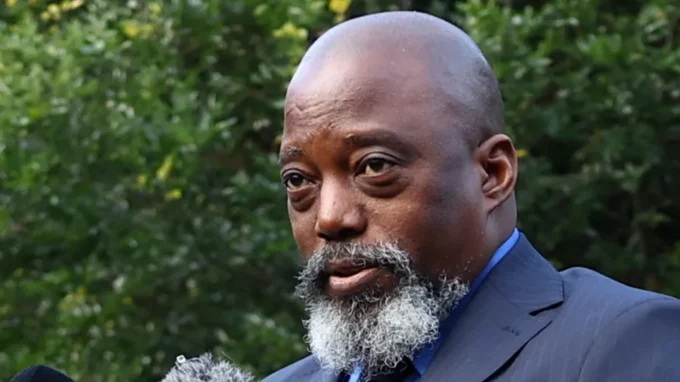Senegalese President Bassirou Diomaye Faye has called for urgent reforms within the Economic Community of West African States (ECOWAS) to effectively combat terrorism and address governance challenges that have weakened regional cooperation. Speaking at the Doha Forum 2024 in Qatar, President Faye emphasized that while ECOWAS has recorded successes over the years, its mechanisms must be strengthened to meet the growing security threats faced by member states.
“Terrorism can happen anywhere. The successes we have achieved with ECOWAS through various mechanisms should not be downplayed against the challenges of governance, which need to be reformed. Through ECOWAS, we can address these challenges,” President Faye stated. His remarks come at a critical time for West Africa, where terrorism and insecurity have escalated, particularly in the Sahel region.
President Faye also acknowledged the Confederation of Sahel States (CSS)—formed by Burkina Faso, Mali, and Niger—and their struggle to address insecurity after leaving ECOWAS earlier this year. “The Confederation of Sahel States is facing challenges,” he noted, urging for renewed regional collaboration and reform to prevent further fragmentation.
President Faye’s comments reflect growing calls for reform within ECOWAS, the 15-member regional bloc founded in 1975 to promote economic integration and political stability in West Africa. However, in recent years, the bloc’s ability to address security crises has come under scrutiny, particularly in the Sahel, where terrorist groups and armed gangs continue to wreak havoc.
The formation of the Confederation of Sahel States marks a significant shift in the regional political landscape. On January 28, 2024, Mali, Niger, and Burkina Faso announced their withdrawal from ECOWAS, citing its failure to effectively combat terrorism as the primary reason. In July, their leaders—Colonel Assimi Goïta of Mali, Brigadier General Abdourahamane Tchiani of Niger, and Captain Ibrahim Traoré of Burkina Faso—signed a charter in Niamey, Niger, officially establishing the CSS to coordinate diplomacy, defense, and foreign policy.
The decision was a direct rebuke to ECOWAS, which these nations argued had become ineffective in addressing their most pressing security challenges. Together, Burkina Faso, Mali, and Niger have borne the brunt of terrorist activity in the Sahel, with thousands killed, millions displaced, and vast areas of territory destabilized by extremist violence over the past decade.
The Sahel, often described as one of the most volatile regions in the world, has become a hotbed for terrorist networks, including groups linked to al-Qaeda and the Islamic State. Weak governance, porous borders, and widespread poverty have provided fertile ground for extremist recruitment and insurgency.
The withdrawal of Burkina Faso, Mali, and Niger from ECOWAS underscored their frustration with the bloc’s perceived inability to mount a coordinated response to these threats. The split also highlighted broader governance and political challenges, as all three nations are led by military governments that came to power through coups—developments that ECOWAS has strongly condemned.
The creation of the CSS signals an alternative model of regional cooperation but also poses risks of further fragmentation and isolation within West Africa. The challenges faced by the Sahel Confederation, as noted by President Faye, include limited resources, weak state institutions, and the daunting task of fighting well-armed and well-organized insurgent groups.
President Faye’s call for ECOWAS reform is both timely and strategic. Strengthening the bloc’s mechanisms to address terrorism and governance challenges could rebuild trust with member states and reintegrate the Sahel nations into the regional fold. Analysts argue that without significant reforms, ECOWAS risks losing its influence as a unifying force in West Africa.
ECOWAS has, in the past, demonstrated its capacity to tackle regional challenges, including peacekeeping missions and diplomatic interventions. However, its response to recent crises—particularly in the Sahel—has been criticized as slow and inadequate. For President Faye, the solution lies in modernizing ECOWAS to reflect the evolving security and political realities of the region.














Leave a comment